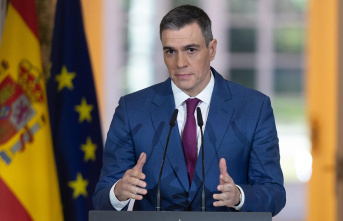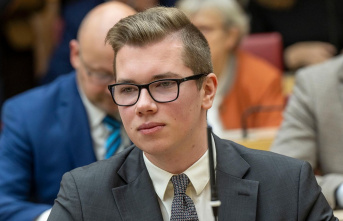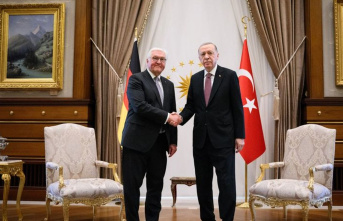Seeing a Pfizer COVID-19 vaccine manufacturing site Friday, President Joe Biden saw firsthand the efforts to ramp up production, but also confessed he can't predict precisely when life will go back to normal.
The site is a crucial hub for manufacturing the vaccine,'' the White House stated, and the excursion was designed to emphasize Biden's efforts to increase manufacturing capacity and optimize supply efficiency.
During a tour of the site, Biden was shown two new assembly lines that are going to have the ability to produce 700,000 doses of this vaccine per day, starting some time next week, as reported by a Pfizer engineer. Pfizer CEO Albert Bourla commended the Biden government's efforts to expedite manufacturing, and discussed which the president asked him to overcome the late-July delivery date to the U.S.'s complete 300 million dose arrangement of this Pfizer vaccine.
"Mr. President, the challenge is approved, and we will attempt to do our best," Bourla explained.
Bourla reported the company has been able to shrink the production timeline on a dose of vaccine from 110 days to 60 days, and 2 months from now will probably be making more than 100 million doses each week, up from the 50 million each week first capacity. Bourla was effusive in his praise for Biden, saying the government has been"a fantastic ally" in helping the company obtain necessary materials.
En route to Michigan, White House press secretary Jen Psaki announced that the Biden government has utilized the Defense Production Act to get lipids, filters and bags Pfizer should produce the vaccine. It had been the first time that the administration has specified how the invocation of the DPA has aided the mass vaccine production effort.
"The government engaged with Pfizer suppliers to obtain the equipment required to expand manufacturing capacity, such as at the facility in Kalamazoo," Psaki said aboard Air Force One.
Despite the progress, Biden acknowledged it could take months before the impacts of the pandemic actually change.
"I think we will be approaching normalcy by the end of the calendar year, and God willing, this Christmas will be different than last, however I can not make that commitment to you," he explained.
Biden also urged Americans to not be reluctant when it comes to the vaccine, addressing what will definitely be a significant struggle for his administration.
"If there is one message to decrease through to everyone in the nation, it's this: The vaccines are safe. Please, for your self, your family, your community, this country, take the vaccine when it is your turn and accessible. That is the way to beat this pandemic," Biden said.
The visit followed a pair of global meetings Biden attended Friday morning -- a virtual G-7 conference along with a virtual Munich Security Conference -- during which he talked about the impact of COVID-19 internationally and declared the U.S. will contribute a total of $4 billion to send COVID-19 vaccines to weak countries.
"There should be cures that the world is able to take part of, since you can't build a wall or fence high enough to maintain a workout," Biden said.
In the domestic attempt to acquire the virus under control, Biden made his case directly to the American people because of his gigantic COVID-19 relief invoice , which could deliver direct relief payments into the majority of people in the U.S. and devote billions of dollars for reopening schools and raising vaccinations throughout the country.
"Today, critics say my plan is too big, it costs $1.9 trillion, which means that's too much. Let me inquire: What would they have me cut? What could they have me leave out? If we not spend $20 billion to all the nation? Should we not invest $290 million to extend unemployment insurance for the 11 million Americans that are unemployed so they can get by while they return to work?" Biden said during his opinions in Kalamazoo.
Democrats are continuing to progress the legislation in Congress through reconciliation, trying to pass on the bill ahead of the looming mid-March expiration date for prolonged unemployment benefits included in the past COVID-19 relief bill.
Speaker Nancy Pelosi said the House hopes to pass its version of this legislation next week to send the bill into the Senate. Biden has emphasized his desire to pass the law with bipartisan support, but said he isn't eager to postpone bringing aid to the American people to achieve that.
Balking at the purchase price tag, no Republicans in Congress have signed on to this nearly $2 trillion bill yet.
A brand new poll in Quinnipiac University reveals 68 percent of Americans support passing the legislation, including 37 percent of Republican voters.
While internal talks about the upcoming steps in Biden's agenda have begun, Psaki made it clear in her briefing Thursday that COVID-19 relief could remain the top priority of this White House until it's passed.
"I would not expect the president or some of us to lay out next pieces of his schedule until this package is through and signed and that release is out, heading out to the public," Psaki explained.











